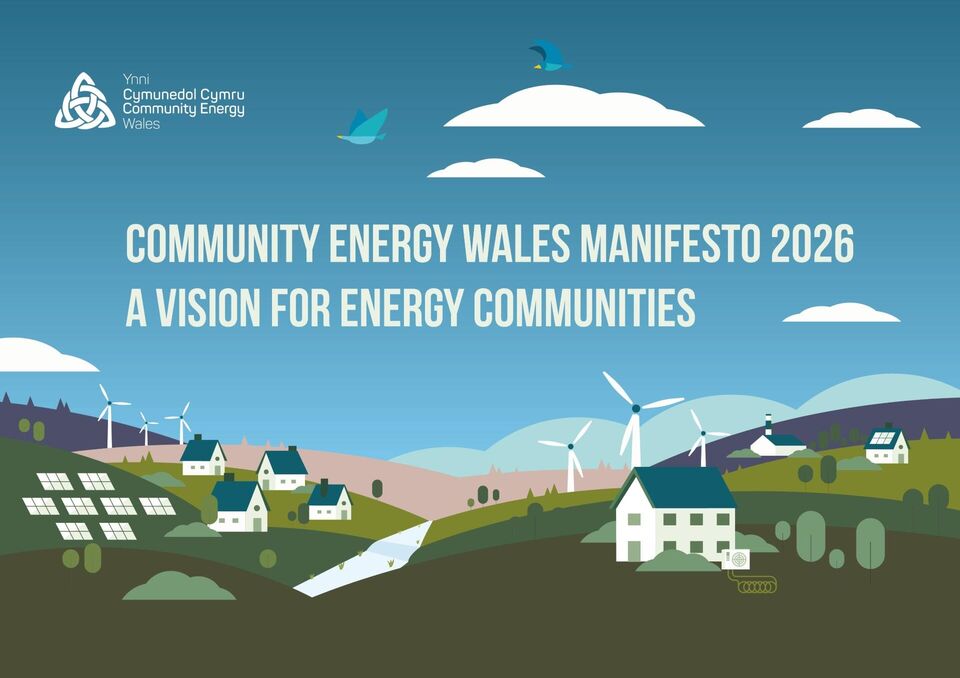Subscribe to our mailing list
If you’d like to keep up to date with all the news and activities from Community Energy Wales, sign up below. We won’t share your details with anyone else, and you can unsubscribe at any time.
In the first of our guest blogs, Thora Tenbrink from Bangor University reacts to our manifesto for next year's Senedd elections.

How can we achieve net zero for Wales? How can our energy consumption become sustainable? How can we stop being dependent on expensive, climate-destructive fossil-fuel energy? How can we achieve a just energy transition that doesn’t just serve rich (and often non-local) big business owners?
Big questions, and only two answers make sense: we can’t – it’s too big for anyone to handle; or: we can – if we join forces and get ready for real change, together. Community Energy Wales’ manifesto brilliantly shows how the second, much more inspiring option could work. Quite possibly, it may be telling us the only way it could work. This manifesto is based on years of experience, hundreds of conversations, multiple sources of expertise – and a sizeable dose of vision and optimism. The manifesto bridges the gap between community action on the ground to top-down decision making. Both are needed to make it work: Policy changes alone will not make a difference, but substantial changes are clearly required to empower communities to make a difference.
The traditional extraction model does not work – nobody can simply use the land to extract valuable resources, and then expect communities to be happy with the interference without any benefits to them.
So what are these changes, and what can communities do? The manifesto lays it all out clearly, providing a roadmap towards a more sustainable future. The most important message is that the envisioned transition towards renewable energy production cannot, will never be achieved without the communities in Wales. The traditional extraction model does not work – nobody can simply use the land to extract valuable resources, and then expect communities to be happy with the interference without any benefits to them. The key to successful expansion of sustainable energy resources clearly lies in community energy: energy that is decided, owned, shared by the communities themselves, with benefits staying just where the energy is produced.
How can this vision become reality? CEW’s manifesto envisions some key mechanisms that will empower communities to take action locally: implementation of some necessary legal measures, and – crucially – a Community Wealth Fund that allows for building the cash that’s needed to get started on a project as daunting as building up a new local renewable energy resource. This Fund is to be fuelled by a new levy on natural resources – adding up to the precise opposite of the traditional extraction model. There is also talk about interest-free loans for new community businesses, making that step so much easier, and giving communities the power to determine how the Community Wealth Fund is to be invested. And a number of useful ideas as to how to build up the skills needed for a community-led energy transition.
That shared community ownership of renewable energy systems works has been demonstrated several times before – with great success across diverse models – but for this to be rolled out more widely, obstacles just need to become smaller, more manageable. Yes, we can do it – with the support we need, with the mechanisms in place, as envisioned by CEW. The manifesto’s suggestions may be bold, but change is necessary. This may be the only way.
Thora Tenbrink is Professor of Linguistics and Director of Postgraduate Research Studies at the College of Arts, Humanities and Social Sciences in Bangor University
To read our manifesto click here.